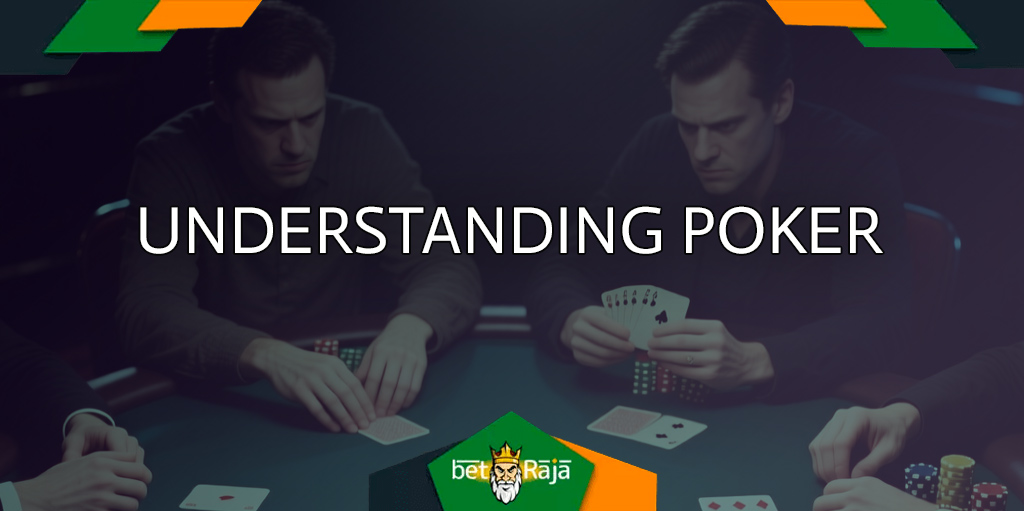Poker vs Sports Betting

When it comes to gambling with the potential to make consistent money, two popular options often come up—poker vs sports betting. Both offer opportunities for skillful players to gain an edge, but they operate in fundamentally different ways. Poker is a game of incomplete information where players compete against each other, using strategy, psychology, and math to come out ahead. In contrast, sports betting involves predicting the outcome of real-world events and often battling against the odds set by bookmakers.
While both involve elements of luck and skill, the probability of long-term success depends heavily on your knowledge, discipline, and ability to manage risk. This comparison explores which path—poker vs sports betting—offers better chances of making money, looking at strategic depth, house edge, variance, and the learning curve. Whether you’re a beginner or looking to go pro, understanding the key differences can help you choose the right game to master.
Comparison of Poker and Sports Betting in the Table
To better understand the distinctions between poker and sports betting, the following table highlights key aspects of each, providing a clear comparison of their strategic elements, risk factors, and potential profitability. This comparison aims to assist in evaluating which option might align more with your preferences and goals.
| Aspect | Poker | Sports Betting |
| Opponent | Other players | Bookmaker (and market odds) |
| Skill vs Luck | Skill-dominant over time | Mix of skill and luck |
| House Edge | None (rake taken from pots) | Built-in margin (bookmaker’s odds) |
| Long-Term Profitability | Possible with strong skill and discipline | Difficult; requires beating the odds consistently |
| Strategy Depth | High (math, psychology, game theory) | Medium-High (stats, models, line shopping) |
| Variance (Short-Term Risk) | High | High |
| Learning Curve | Steep but manageable | Moderate to steep depending on sport/market |
| Accessibility | Requires live or online games | Easy via online platforms or apps |
| Bankroll Management | Critical | Critical |
| Social Element | Strong (especially live games) | Minimal |
Understanding Sports Betting

Sports betting is the practice of placing wagers on the outcome of sporting events. It can range from simple bets—like picking the winner of a football match—to more complex wagers involving point spreads, totals, or live in-game betting. The odds are set by bookmakers, who use algorithms and market trends to predict outcomes while maintaining a built-in profit margin, known as the “vig” or “juice.”
To succeed in sports betting, you need more than just sports knowledge. It requires statistical analysis, value hunting, emotional discipline, and bankroll management. Unlike poker, where you play against other people, sports bettors compete against professional oddsmakers and betting markets.
While some bettors manage to beat the odds consistently, the majority struggle to turn a profit long term. Sharp bettors use models, track line movements, and specialize in specific sports or leagues. Mastery takes time, but with the right strategy, profits are possible.
Understanding Poker

Poker is a strategic card game where players compete against each other rather than the house. The most popular variant, Texas Hold’em, involves a mix of skill, psychology, and probability. Unlike games of pure chance, poker rewards players who make better decisions over the long term. Success depends on reading opponents, managing risk, understanding pot odds, and adapting strategies based on position and table dynamics.
The key advantage of poker is that skilled players can consistently outperform less experienced ones. While luck plays a role in the short term, long-term winners rely on disciplined bankroll management and statistical decision-making. Since the casino only takes a small “rake” from each pot, there’s no fixed house edge to overcome. Learning poker takes time and practice, but it offers a level playing field where knowledge and skill can lead to sustained profits. For those willing to study and evolve, poker remains one of the most beatable forms of gambling.
Analysis and Bankroll Management

Whether you’re betting on sports or poker, analysis and bankroll management are essential for long-term success. Without these two pillars, even the most skilled players risk going broke due to short-term variance and emotional decision-making.
In sports betting, analysis involves researching statistics, trends, injuries, weather, team performance, and line movements. Sharp bettors look for “value bets”—situations where the odds offered by the bookmaker are higher than the actual probability of an event occurring. Tools like predictive models, betting algorithms, and historical data can give an edge, but discipline is just as important.
In poker, analysis includes hand histories, opponent tendencies, table position, and pot odds. Successful players continuously study their gameplay, review hands, and use software tools to track performance and refine strategies.
Bankroll management is the practice of controlling how much you risk on any given bet or hand. In sports betting, a common rule is to risk only 1–5% of your bankroll per wager. In poker, players often follow “buy-in” rules to ensure they stay within safe limits for their skill level and game type. Good analysis helps you make better decisions. Strong bankroll management ensures you can survive the inevitable ups and downs of gambling.
Earning Potential of Poker and Betting

The earning potential in both poker and sports betting hinges on skill, discipline, and the ability to manage risk. In poker, skilled players can secure long-term profits by consistently making better decisions than their opponents. Success is measured in both tournament winnings and cash games, and while short-term variance exists, disciplined play and strategic adjustments can lead to sustained earnings. Profitable poker players often invest time in studying their game, analyzing hand histories, and continuously refining their strategy.
Sports betting, on the other hand, offers earning opportunities through identifying value bets where the odds exceed the true probability of an outcome. This field requires deep research, statistical modeling, and an understanding of market dynamics. However, the built-in bookmaker margin means that even small edges must be leveraged consistently to overcome the vig. In both fields, the potential to make money exists, yet it requires a combination of analytical skills, sound bankroll management, and the capacity to adapt to changing conditions.
Accessibility and Community

Accessibility and community play a significant role in both poker and sports betting, but they differ in how players engage and interact.
Poker offers a more social and community-driven experience, especially in live games. Players often build relationships at the tables, share strategies in online forums, participate in group coaching, or train together with friends on a suitable poker site. Online poker platforms are widely available, with a variety of stakes and formats, making it easy for beginners to start and improve. The poker community is vast and supportive, with plenty of resources, tutorials, and analysis tools available to help players grow.
Sports betting, while more accessible in terms of placing bets (especially through mobile apps), tends to be a more solitary activity. Bettors typically rely on personal research, data tools, or private groups for insights. Though online communities do exist, they are often less interactive than poker circles.
Ultimately, poker offers a more engaging social environment, while sports betting emphasizes individual analysis and convenience.
Ethical and Psychological Aspects

Both poker and sports betting come with ethical and psychological considerations that can significantly impact a player’s experience and long-term success.
Psychologically, both forms of gambling can lead to stress, frustration, or even addiction if not approached responsibly. Poker players face intense emotional swings, known as “tilt,” which can affect decision-making. Staying calm under pressure and managing emotions are crucial skills. In sports betting, the lure of quick wins can lead to impulsive bets and chasing losses, which often worsens outcomes.
Ethically, poker is generally seen as a game of skill, where players compete on a level playing field. However, issues like collusion or cheating in online games do exist. Sports betting raises concerns about match-fixing and insider information, especially in unregulated markets.Responsible gambling is essential in both arenas. Knowing your limits, setting boundaries, and treating gambling as entertainment rather than income are key to maintaining a healthy relationship with the game.
Is poker 100% gambling?
No, poker is not 100% gambling. While there is a short-term element of luck, poker is largely a skill-based game. Over time, players who make consistently better decisions outperform those who rely on chance. Success in poker depends on strategy, mathematics, psychology, and discipline.
What type of gambling has the highest win rate?
Games that involve skill—such as poker and blackjack (when played with strategy)—tend to offer the highest long-term win potential. Among these, poker stands out because you play against other people, not the house, which allows skilled players to maintain a positive expected value over time.
What is the riskiest type of gambling?
High-volatility games like slot machines, lottery tickets, or high-stakes sports betting are among the riskiest. These rely purely on chance, often come with high house edges, and offer low probability of sustained profit, making them the most unpredictable and potentially harmful.
What Makes Poker Different from Sports Betting in Terms of Skill and Luck?
Poker involves direct competition with other players and rewards those who consistently make mathematically and psychologically sound decisions. Sports betting, while also involving skill, depends heavily on external variables and competing against odds set by professionals. Poker gives skilled players more control over their outcomes.




